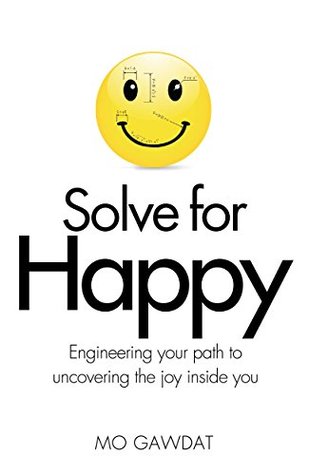More on this book
Community
Kindle Notes & Highlights
by
Mo Gawdat
Read between
October 30 - December 2, 2022
Happiness is the absence of unhappiness. It’s our resting state when nothing clouds the picture or causes interference.
Happiness happens when life seems to be going your way. You feel happy when life behaves the way you want it to. Not surprisingly, the opposite is also true: Unhappiness happens when your reality does not match your hopes and expectations.
But here’s the tricky bit: it’s not the event that makes us unhappy; it’s the way we think about it that does.
It’s the thought, not the actual event, that’s making you unhappy.
If events remain as they are, but changing the way we think about them changes our experience of them, could we become happy simply by changing our thoughts?
All the thinking in the world, until converted into action, has no impact on the reality of our lives.
If fun suspends your thoughts, and happiness arises when your brain agrees with the events of your life, then joy is when thoughts are no longer even needed because the analysis has ended, and the equation has permanently been solved.
There are three types of thought that our brains produce: insightful (used for problem solving), experiential (focused on the task at hand), and narrative (chatter).
So much of your happiness depends not on the conditions of the world around you but on the thoughts you create about them. When you learn to calmly observe the dialogue and the drama, you begin to see the ones and zeros. You can watch your thoughts, knowing that the only power they can gain over you is the power you grant them.
Your memories are nothing more than a record of what you think happened. They’re often not the truth!
Every truth happens exactly as expected, even when you least expect it.
When nothing is certain—and nothing ever is—choose to be happy.
No effort is needed to keep any system at its equilibrium. When everything you do feels effortless, you’ll have found your path.
Gratitude is a sure path to happiness.


